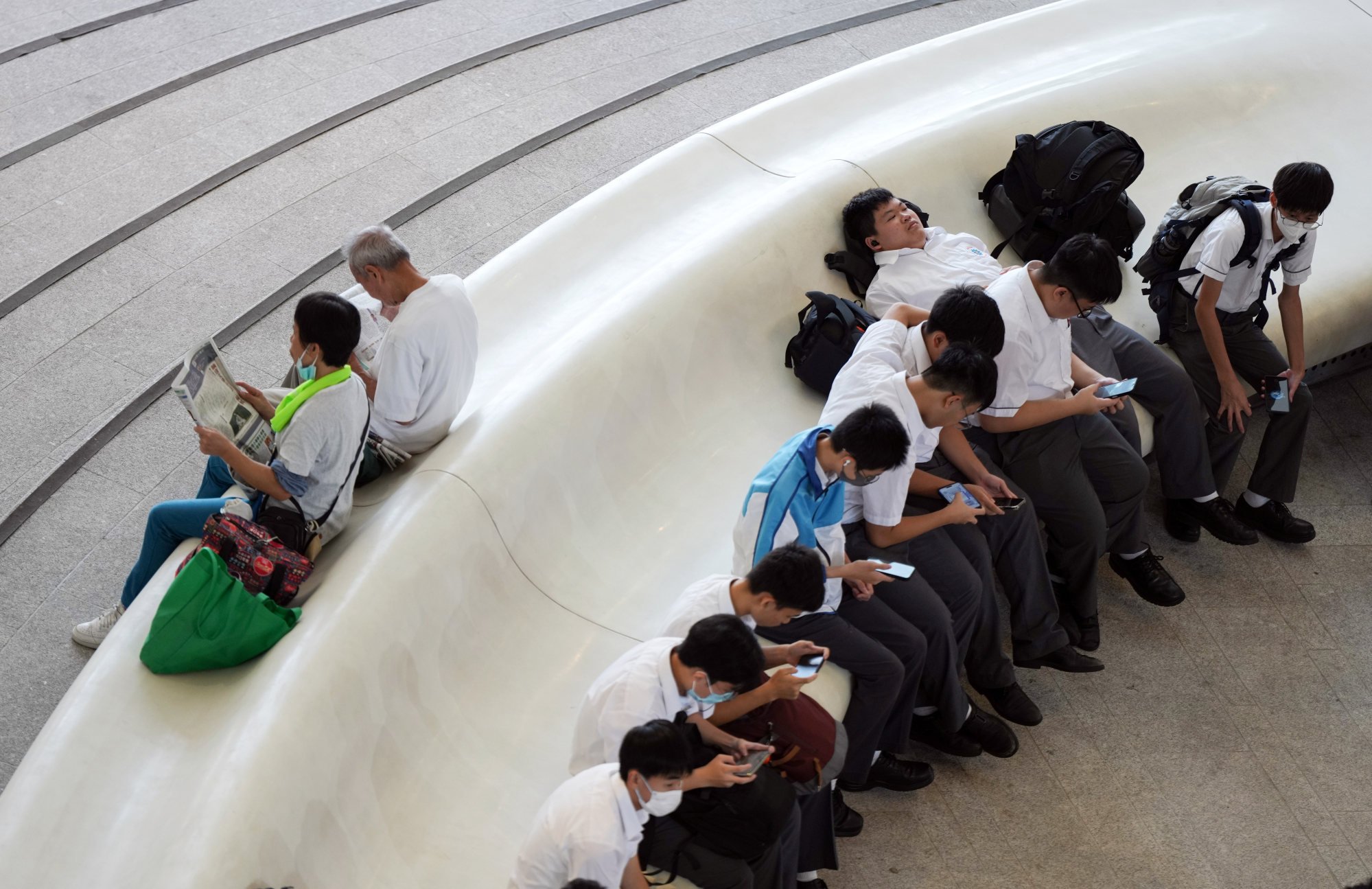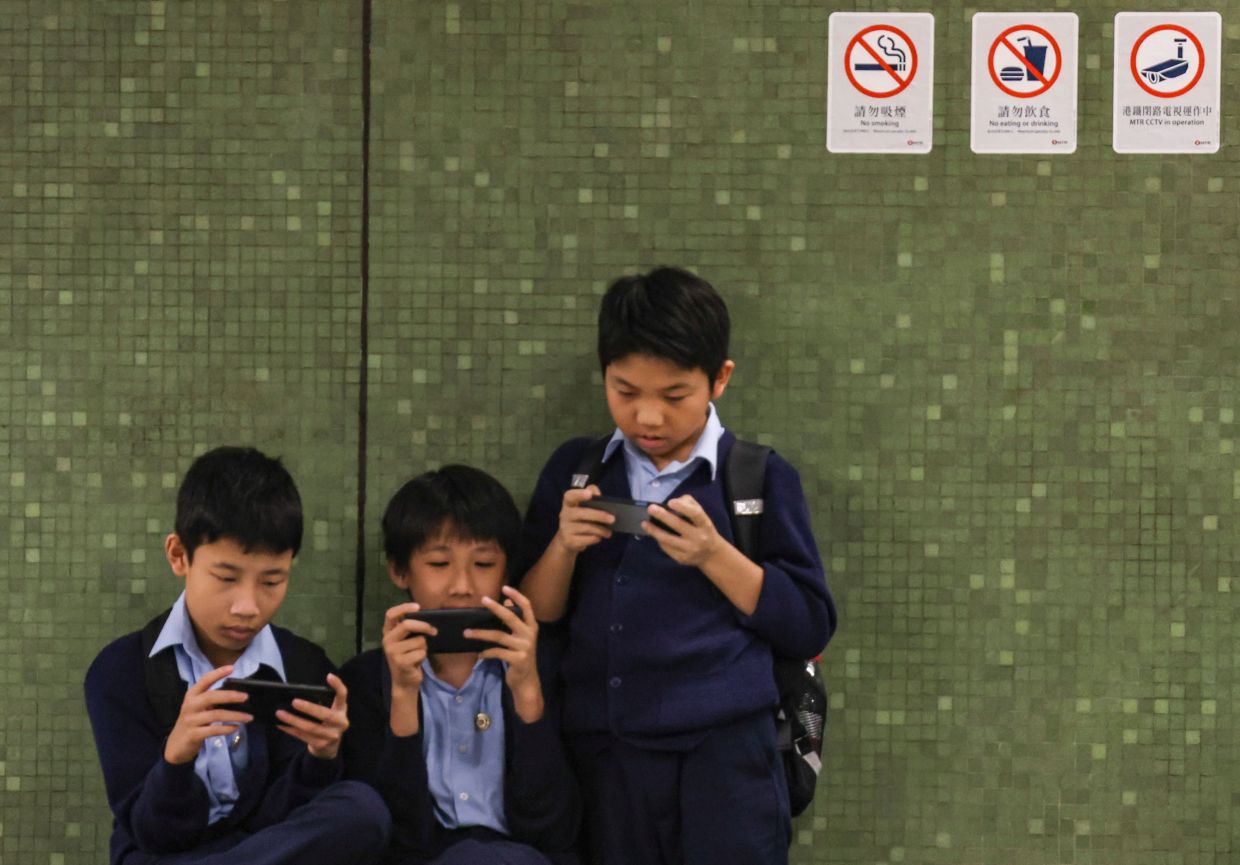Hong Kong authorities will seek to further limit young children’s use of mobile digital devices, including social media access, by updating the city’s guidelines as part of health initiatives set to be unveiled in Wednesday’s policy address, the Post has learned.
The planned review of the guidelines comes amid tightening controls in some countries on minors’ device usage and the ongoing trend of Hong Kong children having the highest myopia incidence rates globally, alongside a notable increase in students’ recreational screen time in recent years.
Authorities would consult experts on encouraging proper mobile device use among students, and the current guidelines specifying screen time limits by age could be revised accordingly, a government source said.
“The government will not resort to legislation to ban the use of such devices as children are using them for learning,” the insider said.
“But more can be done – can we discourage the use of mobile phones on campus? Should younger pupils in primary schools have access to social media?”
Another insider said that the advisory committee on mental health under the Health Bureau would discuss the issue by the end of this month.
Hong Kong does not legally limit screen time, but the Department of Health recommends that children under two should avoid exposure to electronic screens, except for interactive video chats under parents’ guidance.
Children aged two to five should limit screen time to one hour daily, and those aged six to 12 should restrict it to two hours.
For teenagers, no specific time limit is suggested; instead, good time management and regular breaks are advised if extended screen use for study is necessary.
The guidelines were last updated in 2018 and largely align with the World Health Organization’s recommendations, which many countries have adopted.
Professor Paul Yip Siu-fai, director of the Hong Kong University Centre for Suicide Research and Prevention and member of the advisory committee on mental health, emphasised the need for a consistent cross-departmental approach in implementing screen time guidelines.
Yip said limiting screen time benefited students’ mental health by reducing risks such as cyberbullying and unhealthy social comparison.
“However, different stakeholders need to strengthen their communication with each other, reaching a consensus on how to implement the guidelines in real life,” he said.
Students often required digital devices for homework, which could extend their screen time beyond current limits, placing teachers in a difficult position, he added.
Yip also highlighted the importance of educating parents, as many had long screen times themselves and used digital devices as an “electronic pacifier” for children.
“We need to bear in mind that we cannot simply take away social media from students’ lives. We need to promote a healthy and balanced use of digital devices and provide them with healthier alternatives as well,” he said.
Professor Jason Yam Cheuk-sing of the Chinese University of Hong Kong’s department of ophthalmology and visual sciences pointed out that the Covid-19 pandemic had caused a significant rise in childhood myopia due to less outdoor activity and longer screen time.
A study by the Department of Health found that in the 2023-24 academic year, 43% of primary and 81% of secondary students spent two or more hours daily on recreational screen time, compared with 30% and 70%, respectively, in 2019-20.
Previous studies led by Yam also found that the average screen time of young children had more than doubled to seven hours a day during the pandemic, with the myopia incidence rate among six-year-olds doubling from 12% in 2019 to 25% during the outbreak, which was the highest globally.

He warned that this increase had serious public health implications because myopia significantly heightened the risk of eye conditions such as glaucoma, cataracts and macular degeneration, all potential causes of blindness.
“The guideline we have is quite good already, but the key challenge is how to help schools and parents follow the recommendations,” he said.
Aside from limiting screen time, Yam suggested the government explore ways to increase the time children spend on outdoor activities to prevent the onset and progression of myopia.
A local paediatrician, who declined to be named, said Hong Kong should consider drafting guidelines recommending young people spend no more than one hour a day on online games, with a particular focus on teenagers.
“Online gaming could be very addictive,” the doctor said. “It could affect the development of vision, sleeping habits, emotions and learning.”
There is no official data on the prevalence of gaming addiction, but several studies by tertiary institutions and non-governmental organisations suggest that about 10% of students are addicted.
Lawmaker Tang Fei, a former school principal, said screen use patterns differed greatly between schools and homes.
He added that many of the city’s schools widely used electronic tools for teaching while restricting mobile phone use on campus, and that it would be more difficult to limit the use of screen products at home.
Tang suggested that authorities issue two distinct screen time guidelines – one for schools and another for home – to provide clear guidance for educators and parents.
Some countries have already taken legal measures to restrict children’s usage of digital devices.
In 2021, mainland Chinese authorities limited minors’ online gaming to one hour from 8pm to 9pm between Fridays and Sundays, and on public holidays.
The Australian government passed a bill banning social media use for children under 16, which will take effect in December.
The United Kingdom is considering a two-hour daily social media cap for children and may impose curfews blocking access to certain apps during evenings or school hours. – South China Morning Post






